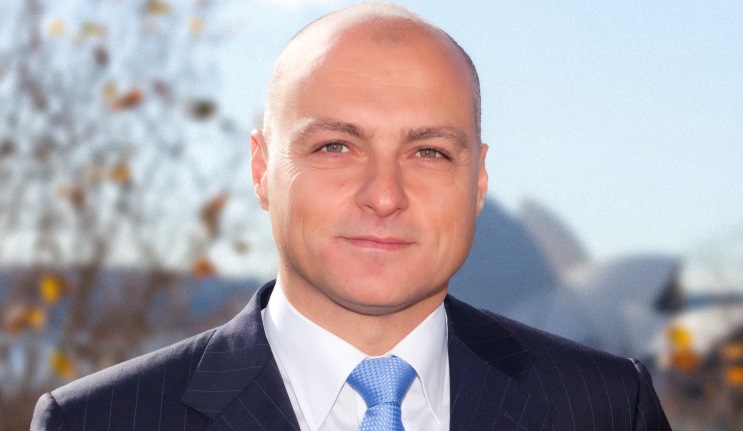
UNIVERSITY NEWS
Tides of change
The new Dean of Macquarie Graduate School of Management has big plans for the school’s future, including talks by Nobel Laureates, a push into China and more women studying for MBAs.
Professor Alex Frino took up his position at MGSM in June this year, joining Macquarie from his previous role as CEO of the Capital Markets Co-operative Research Centre.
“MGSM was ranked in the top four in Australasia in The Economist’s ‘Which MBA?’ rankings last year,” Prof. Frino says. “The same survey ranked MGSM students number two in the world for quality.
“While this is a great achievement, I would like to make MGSM the pre-eminent provider of management education in the region.” But this requires building on past achievements with a fresh approach.
MGSM’s distinguished speakers program will continue to play a crucial role in raising its profile, bolstered by talks from Nobel Laureates to be held by the school every six months.
“We are also working to elevate MGSM’s research profile, by growing research engagement with industry,” Frino adds, explaining that a new Healthcare Management and Leadership unit will be launched in term four; it was developed following engagement and feedback from key healthcare industry leaders.
A Master in Social Entrepreneurship will be offered from 2014, allowing students to use business strategies, knowledge, tools and entrepreneurial spirit to address complex societal and environmental needs.
The school is also offering a scholarship to Wallaby Adam Ashley-Cooper and will offer a similar scholarship to a leading netball player to both increase the school’s exposure to local sporting groups and offer a career pathway to professional sports people.
Creative approach
“The MBA landscape in Australia is increasingly competitive, while domestic demand is shrinking, so we need to be more creative in our approach,” says Frino.
“We also need to recognise that despite China being Australia’s major trading partner, we haven’t sufficiently attracted or engaged with the country on an academic level, so we are taking MGSM to China,” he says. “Watch this space.”
Frino says tackling the global gender imbalance in MBA programs is also paramount.
“What was striking in The Economist’s review of MBA programs was that there was no single program in the top 100 in the world where the number of women outweighs the number of men,” he says.
MGSM is aiming to have the only MBA program in the world’s top 100 that has equal numbers of male and female students.
“In Australia, there were 20,000 students enrolled in MBA programs, of which 35 percent – 7000 – were women and the other 13,000 were men. That means 6000 women were ‘missing in action’.”
He says it’s puzzling, especially when you consider that at undergraduate level women outnumber men. The trend continues in pre-experience masters degrees, but in MBAs, which require business experience, women are absent.
“We think it’s because the target group is aged 25 to 35, which is when many women are taking time out or putting their careers on hold to have families.”
To right the balance, Frino believes that MGSM needs to target women both in the design of its programs, and in its recruitment strategies.
“In the next few months we will be conducting focus groups, involving a 50:50 mix of women who have successfully completed MBA programs and so-called MIA women, who have completed undergraduate study but have not gone on to further MBA (or other Masters-level) study.
“We want to talk to them about how the program is delivered, its structure, and the type and amount of support available around programs, and what needs to change to get women who’ve dropped out of education or the workforce back.”
Frino says they expect increased flexibility and self-paced learning to be key, as well as reduced cost and increased support.
“We need to be cleverer at thinking about how to create a learning environment for women that attracts them soon after they have taken a career break to have families.”